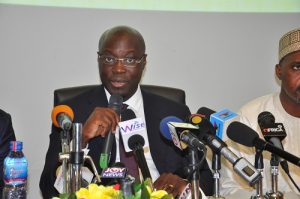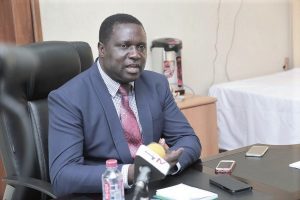Dr. Dominic Ayine, one of the three Members of Parliament who are set to file a private member’s bill to address challenges associated with legal education in Ghana, has explained the idea behind their move.
Dr. Ayine said their bill intends to radically overhaul the General Legal Council.
According to him, this has become necessary because the GLC has failed to live up to the task in respect of meeting the demand for legal education in the country.
He said their bill would seek the creation of a new structure to be called “Council for Legal Education and Training” that would see to the handling of legal education in the Ghana.
The Bolgatanga East lawmaker in a Citi News interview said their bill if passed, will radically change the face of legal education in the country.
“The General Legal Council has been very conservative with respect to the regulations that it has made, and it hasn’t been able to propel access to the legal education as well as tenents of quality legal education in this country. So that is why we are thinking that we should have a radical overhaul.”
“So we want a new structure put together that we call the Council for Legal Education and Training that will be detached from the current General Legal Council. The GLC hasn’t been up to the task of meeting the demands in the country for professional legal education in particular.”
About the said bill
A memo from some three MPs said the bill is expected to bridge gaps in the “current legal and regulatory framework by providing for critical aspects of legal education that remain either partially regulated or wholly regulated.”
The bill is being sponsored by Members of Parliament for Bolgatanga East, Dominic Ayine, Patrick Yaw Boamah, Okaikoi Central, and Muntaka Mohammed Mubarak, Asawase.
The MPs in their bill are recommending the decoupling of the administration and regulation of legal education from that of the legal profession.
They are calling for the establishment of a Council for Legal Education and Training, which shall “be in charge of legal education in the Republic.”
“The Council shall be a body corporate with perpetual succession and a common seal and shall, in its corporate name, be capable of suing and be sued, acquiring and disposing of property and performing any other acts that a body corporate can perform under the Companies Act, 2019 (Act 992) in furtherance of its purpose,” a portion of the proposed bill said.
Meanwhile, the Attorney General and Minister of Justice, Godfred Dame, has also proposed an amendment to the Legal Professions Act to provide a framework for the licensing of universities to run Bachelor of Laws programmes.
The Bill noted that there are currently no modalities under which such approval is to be given by the General Legal Council, and “this has resulted in the establishment of different law faculties in various universities with wide and differential standards in teaching and infrastructure.”
It is expected to sanitize universities offering the Bachelor of Laws programme “and provide for a standardised way of monitoring these institutions to ensure optimum performance.”
“This will also improve on the quality of Bachelor of Laws graduands from these universities and with time, make their entry into Professional Law Course programme more seamless and effortless,” the draft Bill added.







